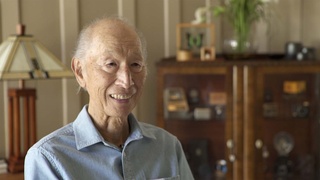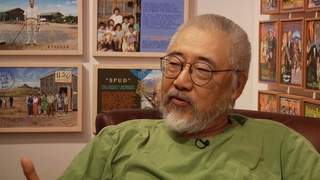Interviews
Concentration camp from a Japanese mother’s point of view (Japanese)
(Japanese) I didn’t know anything at all (about Japanese Americans before I came to the States). But my mother had experienced the war, and she was the one who first told me that the Japanese Americans had been sent to concentration camps before World War II began. Here’s another interesting story about my mother: I don’t know whether my mother read the book (about Japanese American experiences during the World War II). The Gifu prefecture had been bombed by an air-strike, and upon returning from evacuation, she found that her house had burned down into ashes. I remember her telling me, “Maybe the Japanese Americans were more fortunate than us.” Their houses didn’t burn down, they were given food, and they at least had some sense of security. My mother has mentioned before that our parents and grandparents had a much tougher time, surviving with much less food. So even though it was tragic that the Japanese Americans were sent to camp, maybe in a way it was a fortunate thing. This is something that I’ve heard my mother say.
Date: March 1, 2007
Location: California, US
Interviewer: Yoko Nishimura
Contributed by: Watase Media Arts Center, Japanese American National Museum






